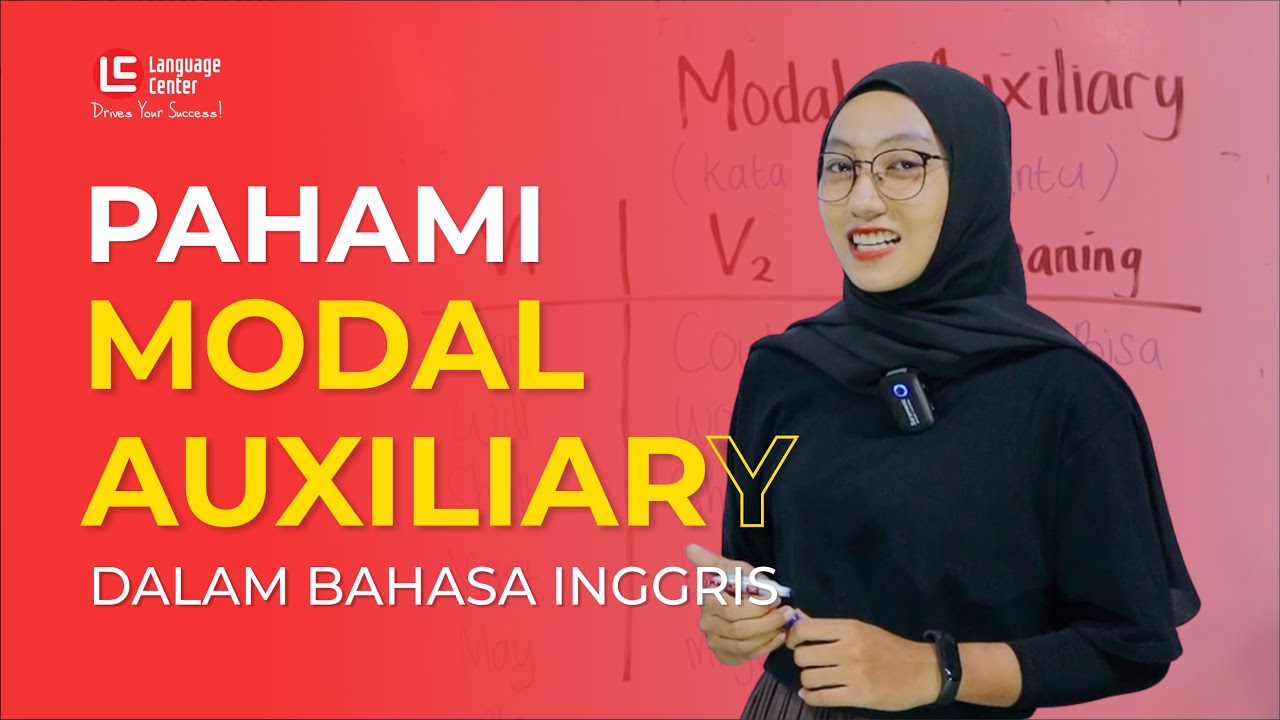Modals Auxiliary : will, can, may, must, should #2
Summary
TLDRThis video provides a detailed explanation of modal auxiliary verbs such as Can, May, Must, Will, and Should. These modals are essential for expressing permission, ability, possibility, obligation, and advice. The tutorial covers their usage in various contexts, including how they function in positive, negative, and question forms. Key rules, like the absence of 's' in third-person singular and the need to follow modals with base verbs, are discussed. Examples for each modal verb demonstrate their practical application, making this an informative lesson for learners to master modal usage in English.
Takeaways
- 😀 Models (Can, May, Must, Will, Should) are auxiliary verbs used to express a speaker's attitude, opinion, permission, possibility, and more.
- 😀 Models are always followed by the base form of a verb (verb 1) and never add 's' for third-person singular.
- 😀 Negative forms of models are created by adding 'not' (e.g., 'She can swim' becomes 'She cannot swim').
- 😀 In interrogative sentences, models come before the subject (e.g., 'Can she swim?' becomes 'She can swim').
- 😀 'Can' is used to express ability (e.g., 'She can operate a computer') and informal permission (e.g., 'Can I borrow your dictionary?').
- 😀 'May' is used for possibility (e.g., 'It may rain today'), formal permission (e.g., 'May I sit here?'), and wishes (e.g., 'May your dreams come true').
- 😀 'Must' is used for obligation (e.g., 'You must wear your seatbelt') and prohibition (e.g., 'You must not eat that').
- 😀 'Will' expresses a promise (e.g., 'I will always love you'), willingness (e.g., 'I will help you'), and prediction (e.g., 'It will rain tonight').
- 😀 'Should' is used for advice (e.g., 'You should eat vegetables'), expectation (e.g., 'The bus should arrive in 10 minutes'), and instructions (e.g., 'Visitors should pay the fee').
- 😀 In practice, the function of each model is identified in context (e.g., 'Alden can't play the piano today' uses 'can' for inability, 'He must be sick' uses 'must' for possibility).
Q & A
What is the main focus of the video?
-The main focus of the video is on explaining modal verbs, such as 'can', 'may', 'must', 'will', and 'should', and how they are used in English grammar to express meaning, permission, ability, necessity, and more.
What are modal verbs and how are they used?
-Modal verbs are auxiliary verbs used to express a speaker's attitude, opinion, or necessity. They are always followed by the base form of the main verb and do not change form for different subjects.
What is the rule for forming negative sentences with modal verbs?
-To form negative sentences with modal verbs, simply add 'not' after the modal verb. For example, 'She can swim' becomes 'She cannot swim' or 'She can't swim'.
How are questions formed using modal verbs?
-Questions are formed by inverting the subject and the modal verb. For example, 'She can swim' becomes 'Can she swim?' and 'They will come' becomes 'Will they come?'
What is the function of 'can' in modal verbs?
-'Can' is used to express ability (e.g., 'She can operate a computer') and permission, but in informal contexts (e.g., 'Can I borrow your book?').
What are the three main functions of the modal verb 'may'?
-'May' is used for possibility (e.g., 'It may rain today'), permission in a formal context (e.g., 'May I sit here?'), and expressing wishes or hopes (e.g., 'May all your dreams come true').
What does the modal verb 'must' express?
-'Must' expresses necessity or obligation (e.g., 'You must wear a seatbelt while driving') and prohibition (e.g., 'You must not eat that').
How is the modal verb 'will' used?
-'Will' is used to express future intentions (e.g., 'I will always love you'), willingness (e.g., 'I will help you'), and predictions (e.g., 'I think it will rain tonight').
What is the function of 'should' in modal verbs?
-'Should' is used to give advice (e.g., 'You should eat vegetables'), express expectations (e.g., 'The bus should arrive in 10 minutes'), and to give instructions or orders (e.g., 'All visitors should pay the fee first').
What is the difference between 'can' and 'may' in expressing permission?
-'Can' is used informally to ask for permission (e.g., 'Can I borrow your pen?'), while 'may' is used for more formal requests (e.g., 'May I sit here?').
Outlines

This section is available to paid users only. Please upgrade to access this part.
Upgrade NowMindmap

This section is available to paid users only. Please upgrade to access this part.
Upgrade NowKeywords

This section is available to paid users only. Please upgrade to access this part.
Upgrade NowHighlights

This section is available to paid users only. Please upgrade to access this part.
Upgrade NowTranscripts

This section is available to paid users only. Please upgrade to access this part.
Upgrade NowBrowse More Related Video

Modal Verbs | MUST CAN WOULD SHOULD MIGHT WILL COULD SHALL MAY

CARA MUDAH BELAJAR MODAL AUXILIARY BAGI PEMULA - Kampung Inggris LC

MODAL AUXILIARY - CAN, COULD, WILL, SHOULD, MAY, MUST (ABILITY, ADVICE) - MATERI KELAS 8

Mahir berbahasa inggris dengan cara cepat: Modal Auxilairy

modal verbs can, could, will, would, may, might, must, should

Quarter 2 - Week 2 - English 10 - Modals and Their Functions
5.0 / 5 (0 votes)